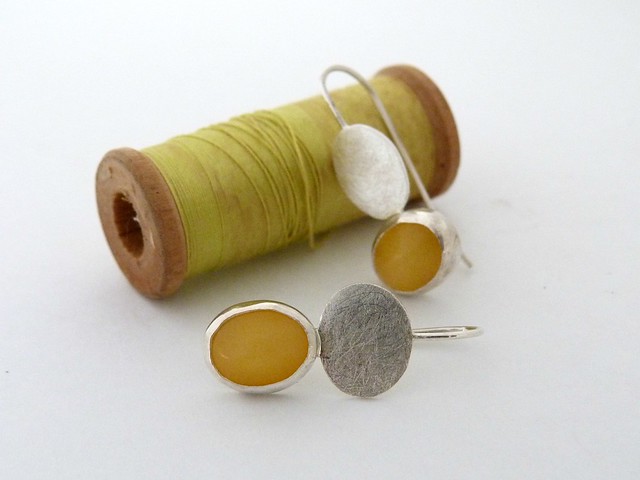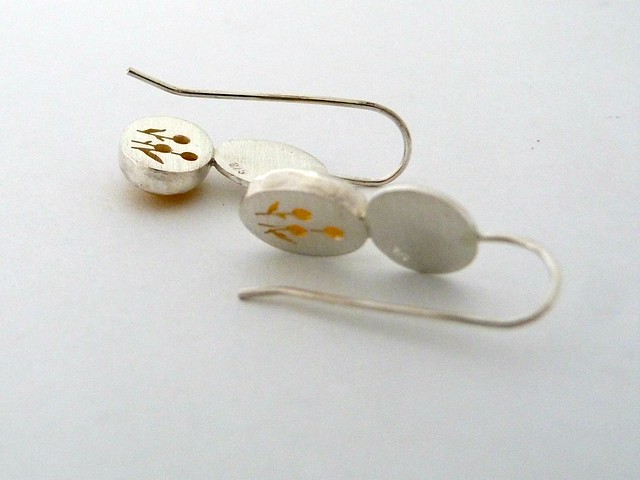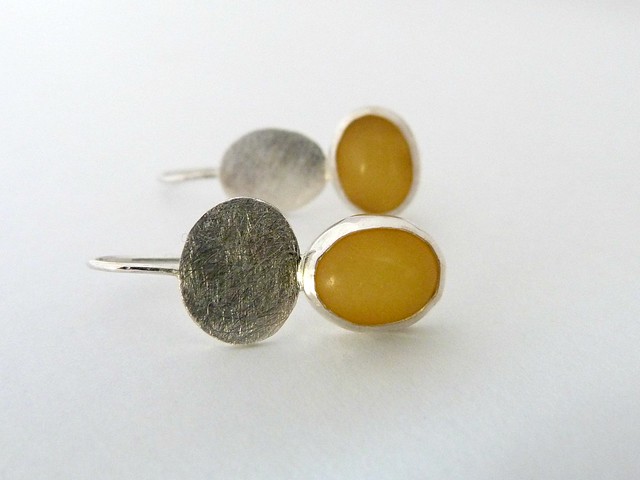Sunday, April 6, 2014
Becoming a Jeweller
After attending an exhibition featuring the work of six jewellers, I was interested to note in the catalogue that not one of them had completed a traditional apprenticeship, but rather gained their amazing skill through universities, TAFE and private schools. This inspired a discussing with my intern, and I thought a post on the topic was merited. For those interested in becoming a jeweller, or jewellers interested in expanding their skills, there are several options. It really depends on the kind of jeweller you want to be and the kind of jewellery you want to make. There are trade based jewellers, who work for manufacturers of jewellery businesses, art based jewellers, who tend to work for themselves and sell their pieces online, to galleries and shops, and self taught jewellers, who also tend to work for themselves and may sell at markets or online. All these jewellers approached their training differently.
Apprenticeship: Firstly, there is the traditional approach of gaining an apprenticeship with an established jeweller. In this way, one works at the bench alongside a trained jeweller learning basic skills, completing repairs, and gradually increasing your abilities and knowledge by learning on the job and completing accredited training blocks though an institute of TAFE. This is generally a four year commitment, though prior training may be acknowledged. Apprenticeships are paid positions, however the wage is quite low. The difficulty is in first finding an apprenticeship, as there are more applicants than places, and it is often a case of who you know, as well as what you know - prior experience is an advantage. Approaching individual jewellers and stores, advertising and contacting TAFE's are some ways to search for an apprenticeship. Apprentices are often expected to make a commitment to keep working for the business that gave them their apprenticeship for a set amount of time, ie: four years of training, then four years as a bench jeweller. At the end of your training you will be a qualified jeweller and will be skilled at creating pieces of jewellery and completing jewellery repairs, often with an emphasis on speed.
University or TAFE: Another great way to gain a wide range of jewellery skills is to complete a degree or course at a University or TAFE. These training facilities often have a really amazing range of tools that the average workshop wouldn't have. You will be learning off an established jeweller with one or two less experienced helpers. The training is not just skill based, but combines skill with conceptual development and encourages exploration of materials and techniques in a way a traditional apprenticeship often can't. At the end of training through a University or TAFE, you can expect to be skilled at creating a wide range of jewellery, though not in jewellery repair. HECS is available to cover the course fees for many courses.
Private Schools: Private schools, like Univeristy or TAFE's, tend to focus on the accumulation of traditional skills as well as conceptual development. Again, speed is not necessarily the focus here, rather craftsmanship, experimentation and a more arty perspective. Lessons can cost a minimum of $80 plus materials and weekend workshops generally start at $300. Introductory and vocation courses cover most necessary skills, while extra workshops cover more specialised skills such as tool making, setting and casting. Your skill levels will depend on the length of training you attend. Many jewellers trained in this way go on to have successful careers working for themselves and exhibiting their work.
Intern: Should you be able to find a jeweller to intern with, you can expect be trained in traditional bench skills as well as receiving a practical grounding in the day to day activities of running a business, keeping accounts, hosting an online shop/ doing markets/ working with clients/ working with retail shops, making contacts with suppliers etc. Depending on the jeweller and the type of work they do, it may be mainly creating one of a kind pieces, mostly working with cast pieces, custom orders and repairs, or a mixture of all of the above. Once again, your skill levels will depend on the length of training you attend, while specialist skills can be learnt at the private schools or TAFE courses mentioned above to build upon your skills. This work is generally unpaid. In exchange for your training you help out once you are able to contribute. It may lead to paid work in the future, or give you the training you need to start your own business.
Self Taught: There are a lot of amazing jewellers out there who are largely self taught. There are so many fantastic resources, from videos and articles online, to books like The Complete Metalsmith, that with patience and dedication, one can learn jewellery as a hobby or as a career.
Becoming a jeweller requires you to learn basic metal working skills, like sawing, drilling, soldering and forming. These skills are then built upon, and will continue to be built upon for as long as you are making jewellery. And that is part of the attraction for me, that each piece presents new challenges, that the range of techniques is so broad, that the materials are so beautiful and interesting. There are many different types of jewellers and just as many paths to becoming one, all of them equally valid and rewarding.
* This post originally appeared as a guest post on the Bespoke zine blog, but I wanted to share it here as well with my lovely readers. :)



